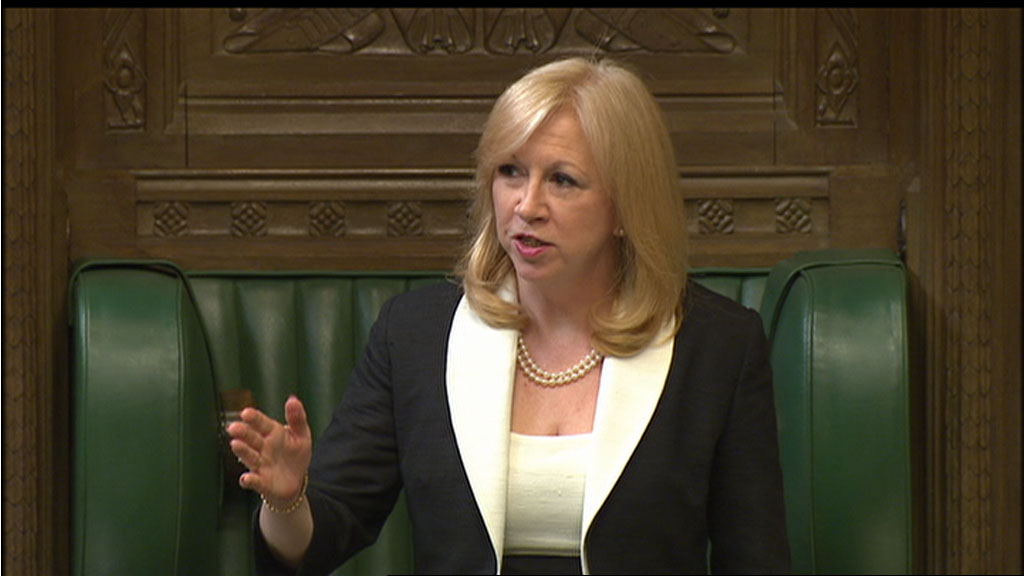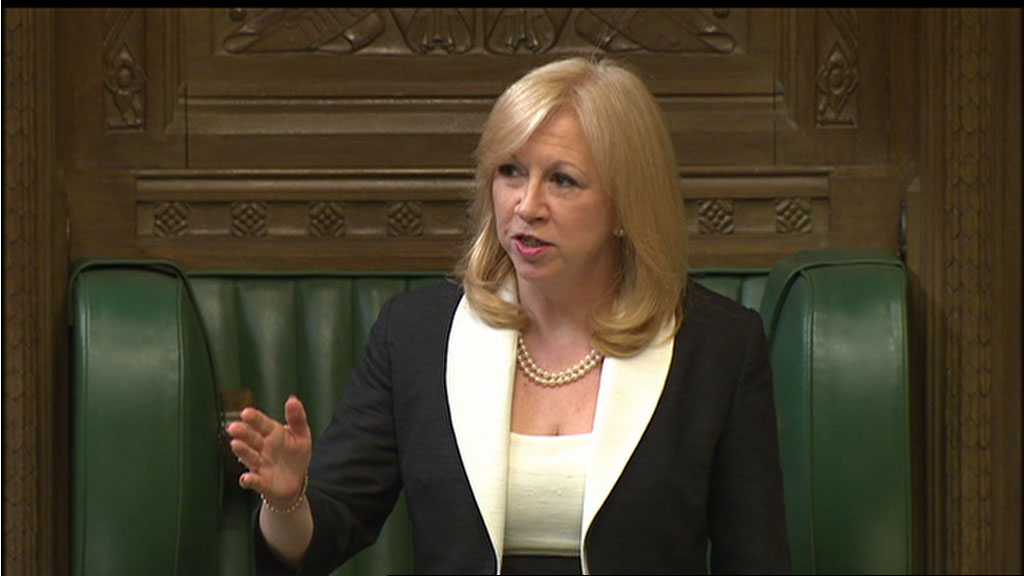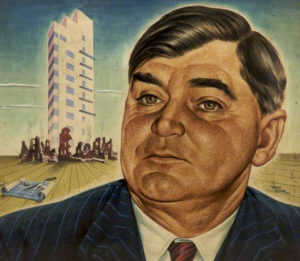
Finest Hour 174
Leadership This Day

December 29, 2016
Finest Hour 174, Autumn 2016
Page 38
By Eleanor Laing
“Leadership This Day” illustrates how Winston Churchill’s example guides and motivates today’s leaders. Contributors come from many fields, including business, politics, and the military.
Every day, as I sit in the Speaker’s Chair in the Chamber of the House of Commons, I am acutely aware of the enduring consequences of one of Winston Churchill’s lesser-known “big decisions.”

2025 International Churchill Conference
In the late 1940s plans were being drawn up to rebuild the House of Commons, which had been so badly damaged during the War. The planners considered the basic facts. There were just over 600 MPs at that time, so they produced drawings for a Chamber that would seat 600 people.
Churchill challenged this. He insisted that the Chamber should be rebuilt to approximately the same size as it had previously been—to seat about 400 people.
Those who relied purely on statistics—and don’t we all encounter such people all too frequently—thought it was obvious that a parliamentary chamber should comfortably accommodate everyone who had a right and duty to sit in it. But they missed the point. They misunderstood the essential nature of the place.
Churchill adored the Commons Chamber. It was the forum in which he delivered his greatest speeches. It was his natural habitat. It was his home. He understood it. He knew instinctively how it worked. He had a feel for it that eluded others.
So he insisted that the essential element of the Chamber must be paramount. That essential element was not the comfort of MPs.
It was the immediacy and the intimacy of the Chamber’s proceedings. There was no need, Churchill argued, to build a larger Chamber to seat 600 people comfortably. It was far more important to create a debating forum in which everyone who spoke, wherever they stood, could see, hear and communicate with everyone else in the Chamber.
He also insisted that the shape of the Chamber should continue to be two sets of benches opposite each other, rather than the fashionable hemisphere. Confrontation is not something to be avoided. It is the very core of democratic activity.
He was right, of course. And he got his way.
Every new MP, and every visitor to the Chamber, is surprised by how small it is. And they are often perturbed by the fact that on important occasion, when every MP wants to be present, there is not enough space for all of us to sit down. It is true that it can sometimes be a bit of a squash. Tardy or busy MPs who have not arrived early to claim their place then have to stand in the aisles, sit on the steps or retreat to the gallery.
But what a distinctive atmosphere that creates. When the Chamber is crowded, it has a particular excitement that cannot be matched. When there is a quiet debate with fewer Members present, the fact that they can see each other and speak in gentler tones makes it easier to reach a consensus.
 Deputy Speaker of the House of Commons Eleanor LaingI smile sometimes when I wonder, as I survey the Chamber from the Chair, what Winston would have thought about parliament being televised, about the bright lights and the microphones, which now intrude into his precious Chamber. I think, however, that he would still have been satisfied by what he achieved in preserving its traditional form. As he said, in the House in 1942, “Thus we arrive, by our ancient constitutional methods, at practical working arrangements which show that Parliamentary democracy can adapt itself to all situations and can go out in all weathers.” He was not actually talking about the Chamber, but I like to think that, if he looked at us today, he would consider what he said then— and he would agree with himself!
Deputy Speaker of the House of Commons Eleanor LaingI smile sometimes when I wonder, as I survey the Chamber from the Chair, what Winston would have thought about parliament being televised, about the bright lights and the microphones, which now intrude into his precious Chamber. I think, however, that he would still have been satisfied by what he achieved in preserving its traditional form. As he said, in the House in 1942, “Thus we arrive, by our ancient constitutional methods, at practical working arrangements which show that Parliamentary democracy can adapt itself to all situations and can go out in all weathers.” He was not actually talking about the Chamber, but I like to think that, if he looked at us today, he would consider what he said then— and he would agree with himself!
So we have yet another manifestation of the important consequences of Churchill’s leadership qualities. Leadership is not just about strength and power. Surely it is also about having the courage of your convictions, trusting your instincts, and having confidence in the lessons gained from your own experience.
We remain in awed admiration of how Churchill stood up to the wickedness of tyranny and evil dictatorship. Let us remember also how he stood up to those who pay attention only to numbers. Every Member of the House of Commons should be eternally grateful that Winston’s wisdom, determination, and leadership has given us the unique Chamber which continues to be at the very heart of our democracy.
The Rt. Hon. Eleanor Laing is the Member of Parliament for Epping Forest, which includes much of what was Sir Winston Churchill’s constituency for forty years. In 2013 she was elected Deputy Speaker of the House of Commons.
Subscribe
WANT MORE?
Get the Churchill Bulletin delivered to your inbox once a month.




